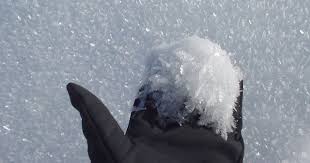hoar
英 [hɔː]
美 [hoʊr]
- adj. 白的;灰色的
- n. 灰白;白霜
- n. (Hoar)人名;(英)霍尔
星级词汇:

记忆方法
1. hare (grey animal): 取名自它的颜色,野兔皮毛基本上都是呈灰色、灰白色的。
2. herring (grey fish): 取名自它的颜色,鲱鱼的颜色都是灰色、灰白色的。
3. hare, herring => hoar, hoary.
2. herring (grey fish): 取名自它的颜色,鲱鱼的颜色都是灰色、灰白色的。
3. hare, herring => hoar, hoary.
中文词源
hoar 灰白的,霜
来自古英语har,灰白的,老的,词源同herring,hare.引申词义霜。
英语词源
- hoar
-
hoar: [OE] Hoar now survives mainly in hoary, a disparaging term for ‘old’, and hoarfrost, literally ‘white frost’. Between them, they encapsulate the meaning of hoar – ‘greyishwhite haired with age’. But it is the colour that is historically primary, not the age. The word goes back to an Indo-European *koi-, whose other descendants include German heiter ‘bright’ and Russian ser’iy ‘grey’.
Another Germanic offshoot was *khairaz – but here the association between ‘grey hair’ and ‘age, venerability’ began to cloud the issue. For while English took the word purely as a colour term, German and Dutch have turned it into a title of respect, originally for an elderly man, now for any man: herr and mijnheer respectively.
=> hare, herring - hoar (adj.)
- Old English har "hoary, gray, venerable, old," the connecting notion being gray hair, from Proto-Germanic *haira (cognates: Old Norse harr "gray-haired, old," Old Saxon, Old High German her "distinguished, noble, glorious," German hehr), from PIE *kei-, source of color adjectives (see hue (n.1)). German also uses the word as a title of respect, in Herr. Of frost, it is recorded in Old English, perhaps expressing the resemblance of the white feathers of frost to an old man's beard. Used as an attribute of boundary stones in Anglo-Saxon, perhaps in reference to being gray with lichens, hence its appearance in place-names.
权威例句
- 1. Child coating on the tongue is hoar, be dyspeptic?
- 孩子舌苔发白, 是消化不良 吗 ?
- 2. The old man has hoar hair.
- 那位老人头发花白.
- 3. Along with hoar frost descending's arrival, the crops, the vegetation start the yellowing, the fallen leaf.
- 随着霜降的到来, 作物 、 草木开始泛黄 、 落叶.
- 4. Man's life is like a candle in the wind or hoar - frost on the tiles.
- 人生犹如风中烛,瓦上霜.
- 5. He told us a t hoar old joke that we'd all heard many times before.
- 他给我们讲了一个我们都听了很多次的老掉牙的笑话.
